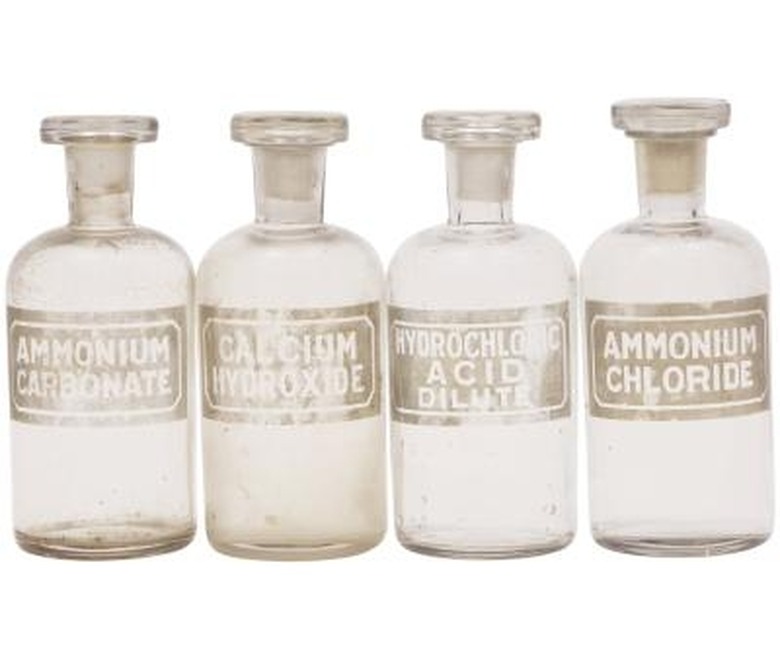How Does PH Paper Work?
To understand how pH paper works, it helps to understand what pH is. The term stands for potential hydrogen and is a measurement of how many hydrogen ions, symbolized by H+, are in a solution. The more ions, the more acidic a substance. A high number of hydroxide ions, symbolized by an OH-, characterizes basic, or alkaline, substances. If a substance has the same amount of H+ and OH-, then it is said to be neutral. Water is a common example of this sort of solution. Examples of acidic and basic solutions include lemon juice and soapy water, respectively.
Main Use for pH Paper
PH paper is used to determine if a solution is acidic, basic or neutral. This is determined by dipping part of the paper into a solution of interest and watching the color change. The packages that pH paper comes in often includes a color-coded scale indicating the pH that something has when the paper turns a certain color. For instance, if the paper turns a dark greenish-blue, the pH may likely be around 11 to 14.
PH Chemical Indicators
PH paper is treated with a chemical indicator that changes in the presence of hydroxide or hydrogen ions. Such chemical indicators can be found in foods such as red cabbage, strawberries or blueberries, to name a few, according to professors at Purdue University.
Why the Color Change
This pH paper changes color in different pH solutions because of the chemical flavin, which is a pigment present in red cabbage. This molecule, which is an anthocyanin (see Resources), is soluble in water and changes color in the presence of various types of solutions. In the presence of an acidic solution, it turns red. In the presence of a basic solution, it turns greenish. In the presence of a neutral solution, it turns purple, as indicated by adminsitrator L. Bry at MadSci Research.
General Color Changes
When flavin-treated pH paper is dipped into a vial of an acidic solution, such as hydrochloric acid, or HCL, it turns red. When it's dipped into a vial of sodium hydroxide, or NaOH, which is basic, it turns a greenish color. When pH paper is in the presence of pure water, it turns purple. Note that litmus paper only turns two colors: red for acids and blue for bases.
Cite This Article
MLA
Taylor, Somer. "How Does PH Paper Work?" sciencing.com, https://www.sciencing.com/ph-paper-work-4923429/. 24 April 2017.
APA
Taylor, Somer. (2017, April 24). How Does PH Paper Work?. sciencing.com. Retrieved from https://www.sciencing.com/ph-paper-work-4923429/
Chicago
Taylor, Somer. How Does PH Paper Work? last modified March 24, 2022. https://www.sciencing.com/ph-paper-work-4923429/
